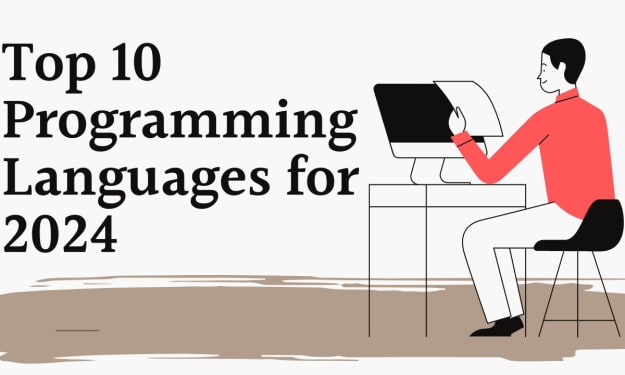Top 28 Java Interview Questions and Answers For Freshers
Explore the mostly asked Java freshers interview questions and answers

In this post, we will explore some of the most frequently asked basic Java interview questions. It contains interview questions from different java topics like strings, threads, servlets, OOPs etc. These questions are easy to answer and it will also enhance your confidence and help you ace your Java interviews.
1. What is Java?
Java is a high-level, object-oriented programming language known for its portability, security, and robustness. It is used to develop standalone applications, mobile apps, web applications, and distributed systems. Java code can run on any device with the Java Virtual Machine (JVM), adhering to the "write once, run anywhere" principle.
2. Explain the main features of Java.
Java's key features include:
- Platform Independence: Java programs run on any device with a JVM.
- Object-Oriented: Promotes code organization through objects and classes.
- Simplicity: Easy-to-learn syntax.
- Security: Built-in security features.
- Robustness: Strong memory management and error handling.
3. Differentiate between JDK, JRE, and JVM.
- JDK (Java Development Kit): Provides tools to write, compile, and debug Java applications.
- JRE (Java Runtime Environment): Contains JVM and libraries to run Java applications.
- JVM (Java Virtual Machine): Executes Java bytecode on any device.
4. What is the main difference between == and .equals() in Java?
- == Operator: Compares object references, checking if they point to the same memory location.
- .equals() Method: Compares the actual content of objects for logical equality.
5. What are the Pillars of Object-Oriented Programming (OOP) in Java.
There are four pillars of OOPs in java which includes Inheritance , Encapsulation, Polymorphism & Abstraction.
6. What is the significance of the "static" keyword in Java?
The static keyword designates class-level variables and methods, meaning they belong to the class itself rather than any instance. Static members can be accessed without creating an object of the class.
7. How does Java support multithreading?
Java supports multithreading by allowing classes to extend the Thread class or implement the Runnable interface, enabling multiple threads to run concurrently.
8. Explain the difference between "final," "finally," and "finalize."
- final: Used to define constants, prevent method overriding, and stop inheritance.
- finally: A block of code that always executes after try-catch, whether an exception is thrown or not.
- finalize: A method called by the garbage collector before reclaiming an object's memory.
9. What is the purpose of the "main" method in Java?
The "main" method is the entry point for Java programs. It initiates the program's execution with the signature:
public static void main(String[] args) {
// code
}
10. How does exception handling work in Java?
Exception handling in Java involves using try, catch, and finally blocks. The "try" block contains code that might throw exceptions, the "catch" block handles exceptions, and the "finally" block executes regardless of whether an exception occurs.
11. Can you explain the significance of the "this" keyword in Java?
The "this" keyword refers to the current instance of an object, differentiating instance variables from local variables when they share the same name.
12. What is method overloading?
Method overloading allows a class to have multiple methods with the same name but different parameters.
13. Differentiate between method overloading and method overriding.
- Method Overloading: A class can have multiple methods with the same name but with different parameters.
- Method Overriding: A subclass provides a specific implementation for a method already defined in its parent class.
14. How does Java support multiple inheritance?
Java supports multiple inheritance through interfaces. A class can implement multiple interfaces, inheriting methods from all of them.
15. What is the purpose of the "super" keyword in Java?
The "super" keyword refers to the parent class, used to invoke the parent class's methods, access its fields, or call its constructor.
16. What is JDBC?
JDBC (Java Database Connectivity) is an API that allows Java applications to interact with databases, enabling querying and updating data.
17. Explain the concept of abstraction in Java.
Abstraction hides complex implementation details and shows only essential features. It is achieved using abstract classes and interfaces.
18. How does garbage collection work in Java?
Java's garbage collector automatically identifies and removes objects no longer in use, freeing up memory.
19. What is the purpose of the "transient" keyword in Java?
The "transient" keyword indicates that a variable should not be serialized during object serialization.
20. How does the "break" statement work in Java?
The "break" statement terminates the loop or switch statement it appears in, transferring control to the statement immediately following the loop or switch.
21. What is the role of the "static" block in Java?
The "static" block initializes static variables and is executed once when the class is loaded into memory.
22. Can you explain the concept of polymorphism in Java?
Polymorphism allows one interface to be used for a general class of actions. It is achieved through method overloading and method overriding.
23. How does the "implements" keyword differ from "extends" in Java?
The "implements" keyword is used for implementing interfaces, while "extends" is used for inheriting from a class.
24. What is the purpose of the "volatile" keyword in Java?
The "volatile" keyword indicates that a variable's value may be changed by multiple threads simultaneously, ensuring visibility of changes across threads.
25. How can you prevent a class from being inherited in Java?
Declaring a class as "final" prevents it from being inherited.
26. What is a constructor in Java?
A constructor is a special method that initializes objects. It has the same name as the class and is called when an object is created.
27. What is a Servlet?
A Servlet is a Java program running on a web server that handles client requests and generates responses, such as processing form data.
28. What is a JSP Page?
JSP (JavaServer Pages) allows embedding Java code into HTML to create dynamic web pages, making it easier to generate web content without complex code.
These questions and answers cover fundamental Java concepts that are commonly discussed in interviews. Understanding them will provide a strong foundation for any Java developer.
About the Creator
OMKAR
Here I will share programming languages tutorials, latest tech updates, coding tips and tricks, Learn Java with lot of examples, interview questions, recommendations and many more..., So make sure you have subscribed to our page.
Enjoyed the story? Support the Creator.
Subscribe for free to receive all their stories in your feed. You could also pledge your support or give them a one-off tip, letting them know you appreciate their work.






Comments
There are no comments for this story
Be the first to respond and start the conversation.